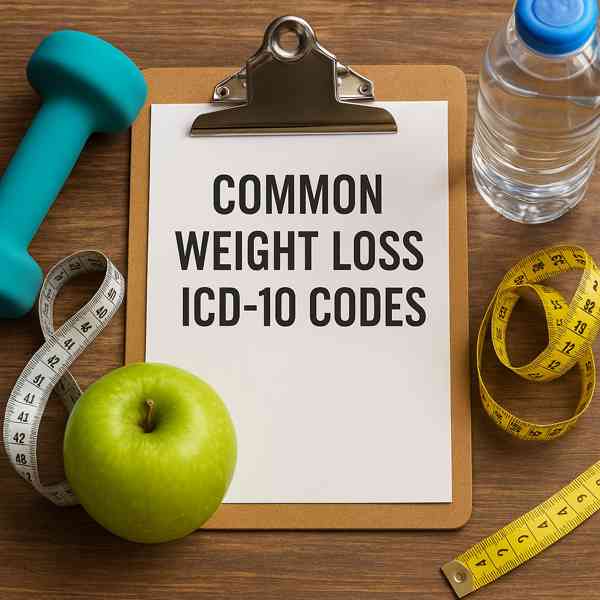Understanding Weight Loss ICD-10 Codes
Understanding Weight Loss ICD-10 Codes
Blog Article

ICD-10 codes help communicate diagnoses effectively, ensuring insurance coverage and proper documentation.
In this article, we’ll break down what ICD-10 codes are used for weight loss, how to apply them, and what you should know for accurate recordkeeping.
What Are ICD-10 Codes?
ICD-10 stands for the International Classification of Diseases, 10th Revision.
Each diagnosis is assigned a unique code, which is used for:
- Submitting claims to health providers
- Organizing medical statistics
- Clinical documentation
ICD-10 Codes for Weight Loss
Weight loss can be intentional or unintentional — and each situation has a specific ICD-10 code.
Key codes include:
- Used when weight loss is unexplained or unintentional
This code applies when a patient loses a significant amount of weight without trying, often due to illness.
- Z71.3 – Dietary Counseling and Surveillance
Often applied in cases involving nutritional intervention or guidance.
- Z72.4 – Inappropriate Diet and Eating Habits
- E66.9 – Obesity, Unspecified
- Applied in extreme undernutrition cases, often linked with weight loss
Documenting Unexplained Weight Loss Properly
R63.4 is the most commonly used ICD-10 code for weight loss, but it must be applied correctly.
- There is no intentional diet or fitness program involved
- A known condition doesn’t fully explain the weight change
- Used as part of diagnostic workup
Important Notes for Coding Accuracy
To avoid claim denials or coding errors:
- This determines whether R63.4 is appropriate
- Document related symptoms or conditions
- Support your claim with a full picture
- Be sure they make sense in context
Coding for Counseling and Support Services
If you’re coding for a structured weight loss program or health coaching, consider using these Z-codes:
- For nutrition-based support
- Z76.89 – Person Encountering Health Services for Other Reasons
- Z13.21 – Encounter for Nutritional Screening
These codes can support insurance claims for wellness, prevention, and obesity visit treatment plans.
Ensure Documentation is Clear and Compliant
Whether you’re coding for unintentional weight loss or part of a managed care plan, accuracy matters.
To summarize:
- Most common diagnosis for unknown causes
- Z-codes = Counseling, prevention, and health maintenance
- Use when weight loss is tied to illness
When in doubt, document fully and consult with a certified coding professional. Report this page